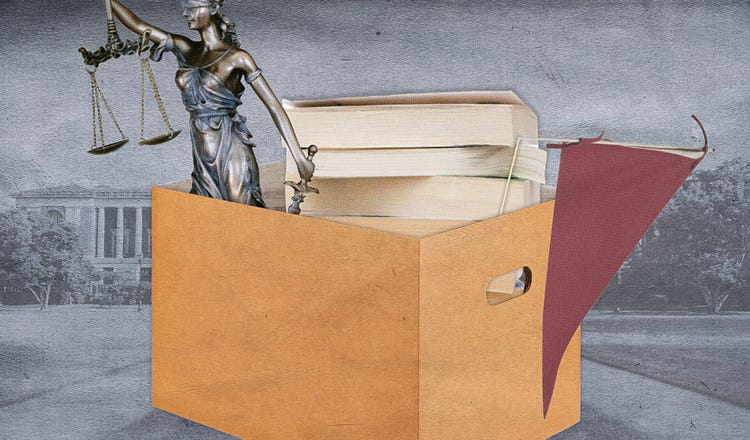Exodus of the Wrongthinkers from American Universities

Photo illustration by The Free Press
Colleges used to encourage the exchange of challenging ideas. Now faculty members who challenge students’ beliefs are being forced to leave the profession.
80
One sentence in a blog post almost ruined Thomas Smith’s career.
“If you believe that the coronavirus did not escape from the lab in Wuhan, you have to at least consider that you are an idiot who is swallowing whole a lot of Chinese cock swaddle,” commented Smith, 65, a law professor at the University of San Diego.
He wrote it back in 2021, in a piece que…
Continue Reading The Free Press
To support our journalism, and unlock all of our investigative stories and provocative commentary about the world as it actually is, subscribe below.
$8.33/month
Billed as $100 yearly
$10/month
Billed as $10 monthly
Already have an account?
Sign In

